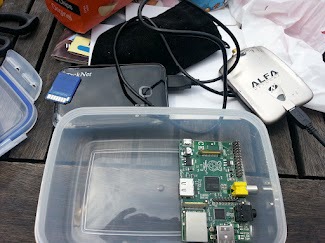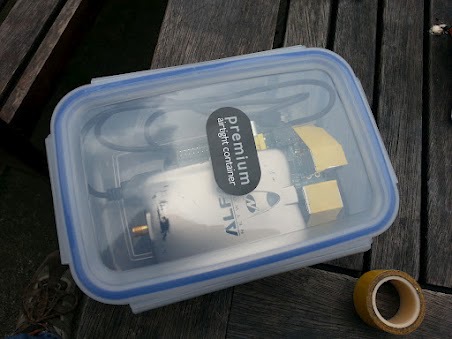Baking a Pwnberry Pi
Earlier in the month I made reference in my Google+ posting that I had begun prototyping a pentesting “drop box” using the (Raspberry Pi)[https://www.raspberrypi.org] as the brains.
This is now 19 days since, and I realised I had not gotten around to writing a blog post on the project.
The Problem
The general public are unaware just how much data they send/receive at any given time; especially if said person has a “smart phone” the wealth of personal data a person carries around in their pocket can be staggering; more so that they have absolutely no clue how bad that can potentially be.
Want to carry out a little experiment?
- Gather some none netsec aware people
- How many of them can tell you right now without looking, if their phones wifi is enabled?
- How many can do the same for bluetooth?
- Without giving details, how many have passwords / bank details / something that shoudln’t be on their phone; on their phone?
You’ll be concerned with the results (unless you have somehow found a random grouping of people completely aware of their phones function and content at all times …).
Bridging the gap
In my experience no matter how you phrase it; for the general end consumer any conversation on netsec is met with indifference mainly due to a lack of understanding which is frustrating to say the least.
However you can can two directions in this situation berate the stupid luser; or you can attempt to educate them, and to that effect the most successfull method is something visual, in the form of a practical demonstration of the point you are trying to get across.
Why? It removes the need for the end consumer to attempt to mentally visualise what you are describing; all puns aside this makes it far easier for the end consumer to understand.
Education, got it … so why the pi?
Simple really, inexpensive 600MHZ arm processor that can boot linux and run from a battery pack.
The peak consumption I read somewhere is around 700ma, the battery pack in question is a 5000maH which asusming we see a 60% return on a full charge equestes to roughly 4.5hrs run time total.
- Low power consumption
- Easily portable
- Relativly inexpensive
- Runs linux
The Concept
I’d like to assume if you are reading this, you have at least a basic knowledge of netsec so at this point the post becomes less end user friendly …
- Jassegar - utilizing jassegar to masquerade as a trusted ap, and route traffic through ethernet / usb 3g dongle. a. Desposable - setup and go, access data over 3g connection via a reverse tunnel; remote wipe / destruction.
- Karma - I don’t know much about the karma quite, it appears this can be used for much the same as jassegar.
Couple the above with airdrop-ng for active denial of all wifi in the area, and suddenly every smart phone / laptop in the area is routing via the pwnberry pi and NO ONE is the wiser.
Proof or STFU
Whilst I don’t have a working demo at this time, perhaps some photos of the “build” would suffice?

Running left to right:
- SD Card
- 5000maH usb battery
- Bottom of the “weather proof box”
- Raspberry PI
- ALFA awus036nh

All boxed in the “Premium” container, aka rubber sealed tupperware of doom …
To come …
I’m trying out different distributions to achieve this, pwnpi is looking promising at the moment.
As always time is limited so it’s on an as / when basis.

